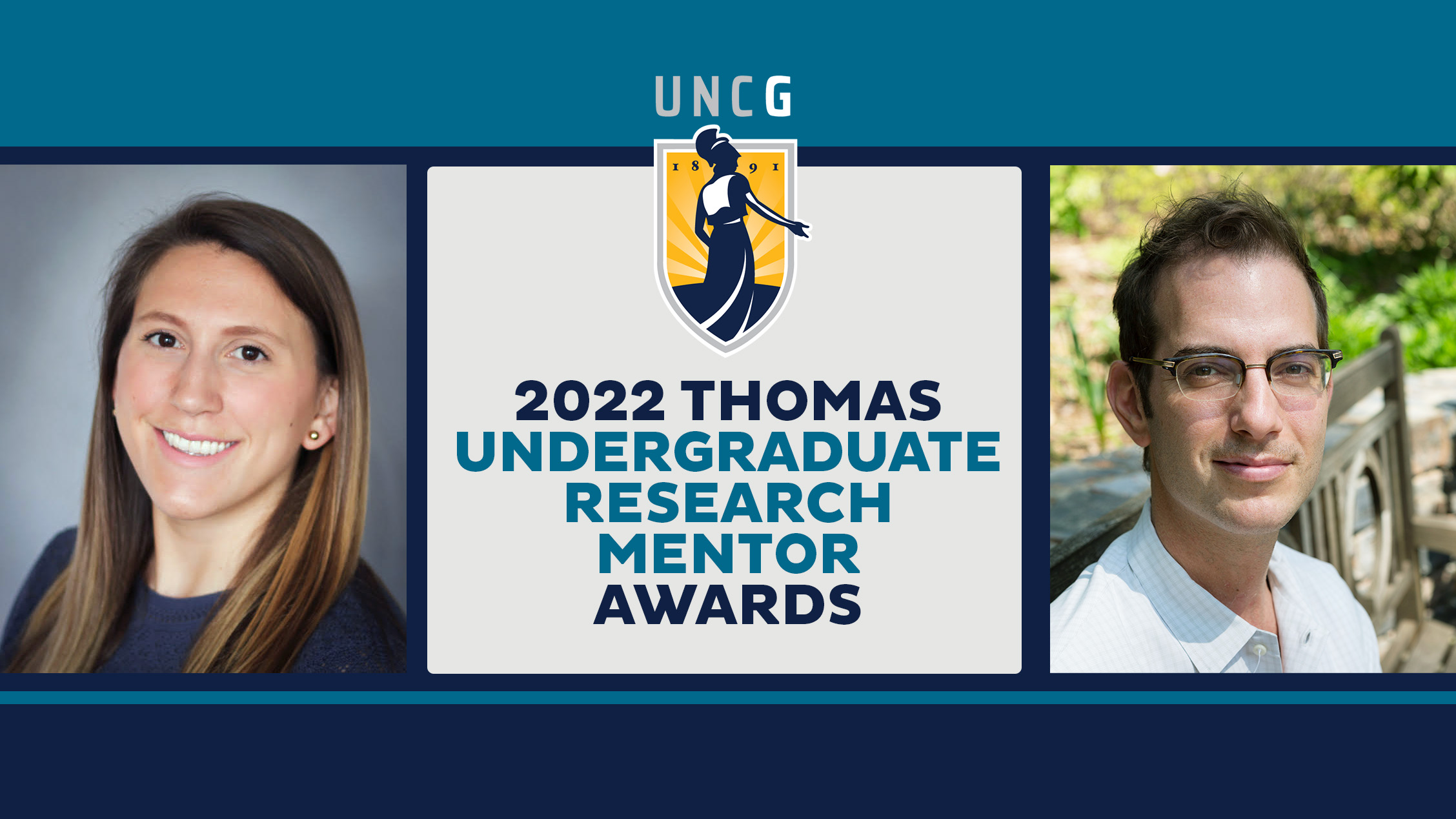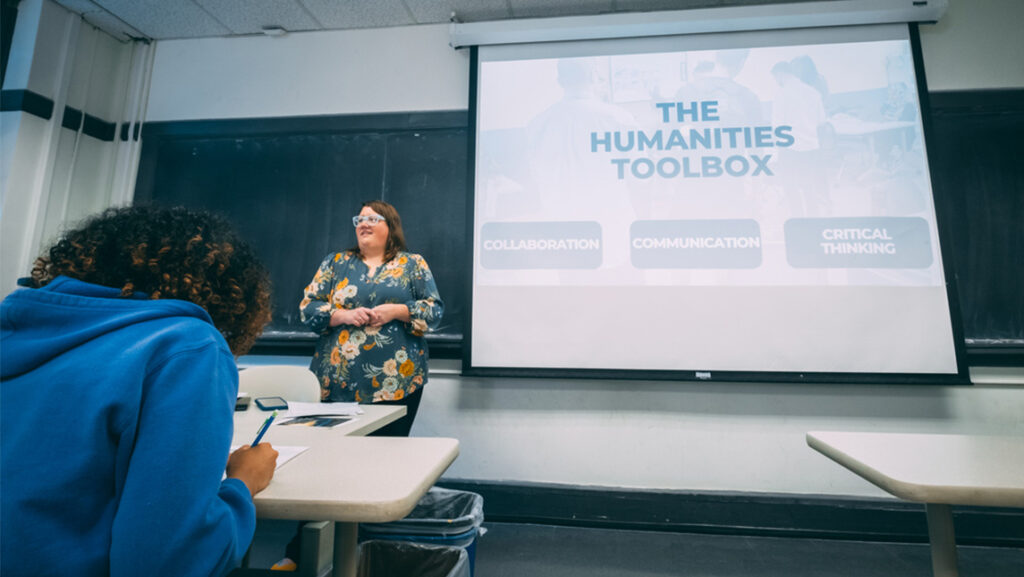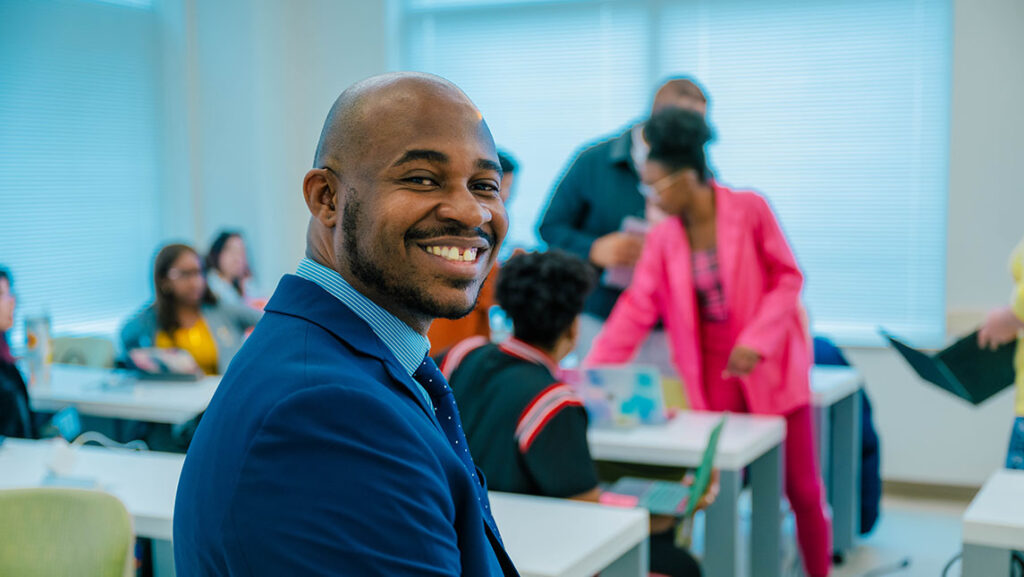Eger in history receives tenured faculty award
Associate Professor Asa Eger is a historian whose research interests include Islamic and Byzantine history and archaeology, the eastern Mediterranean, frontiers and borderlands, and environmental history. Since joining UNCG in 2009, Dr. Eger has mentored 12 undergraduates across 14 projects. With a collaborative approach to mentorship, Dr. Eger helps his students create individual projects that allow them to explore topics and real-world issues they are passionate about – while developing their research skills, in the process.
Dr. Eger has published four books, including the award-winning “The Islamic-Byzantine Frontier: Interaction and Exchange between Christian and Muslim Communities” and 2021’s “Antioch: A History,” which is through Routledge. He currently has four other books in preparation, with topics ranging from the excavation he recently directed at a 10th-century frontier fortress in Turkey and reexaminations of materials from a 1930s Princeton excavation at Antioch and from a survey of the plain of Aleppo.
Undergraduates have worked with Eger both locally and internationally, with six receiving support from UNCG Undergraduate Research and Creativity – or URCA – Awards. “The funding brings students in and out of archives, on international research trips, and helps them to develop research innovatively through digital means at home.”
Seth Rumbley, for example, traveled to Israel to examine the site of a destroyed Palestinian village, speak with local scholars, correct oral histories, and dive into the state archives in Jeruselem. More recently, when Gordan Cathcart couldn’t travel due to the pandemic, Eger helped him pivot to a digital project on a poorly known Bosnian community in Israel, which he pursued by examining British photography and connecting remotely with Israeli scholars and people whose grandparents and great grandparents lived in the region.
For Dr. Eger, undergraduate research is about opening doors permanently. “Broadening the historical narrative across interdisciplinary fields like archeology and public history challenges students to be critical of any one perception or story,” he says. “I aim to prepare my students to become critical thinkers – empowered, better informed, intelligent, and independent humans.”
Seth Rumbley ’17 on his work with Eger:
Dr. Eger and I collaborated to prepare a submission for a Globally-Engaged URCA, which involved data collection and archival research on Palestinians displaced from Al-Kabri. This experience was fundamental to my professional development … I gained a deeper understanding of the complexities of global conflict and displacement, which became my primary field of interest in my graduate studies in social work. While pursuing my graduate degree, I interned at local refugee resettlement agencies, where I drew from my experience as Dr. Eger’s mentee to aid in the development of rapport with refugees from Syria and Iraq … He is a role model, is dedicated to students’ education and success, and actively works to prepare students for their futures.”
Bret Dang ’19 on his work with Eger:
“Beginning in the spring of 2017, Dr. Eger supervised me on an URCA research project concerning archaeological surveys of the Cilicia region of Turkey and its historical settlement-patterns from the Classical to Early Contemporary eras. His guidance was invaluable and I was able to hone a great variety of skills and experience needed in preparation for my future graduate school plans … Outside of the URCA advisorship, Dr. Eger also counseled and facilitated nearly all of my honors works and independent studies, again seeking to encourage me as a student to pursue more rigorous and rewarding academic challenges beyond the scope of normal coursework, which ultimately culminated in his mentorship of my Senior Honors joint thesis in History and Religious Studies. His guidance was always with my long-term goal in mind – graduate studies in archaeological studies – and his support over the years made me more confident in my own abilities and readiness for continuing my education beyond undergraduate studies.”
Maher in kinesiology receives pre-tenure faculty award
Assistant Professor Jaclyn Maher is a kinesiologist with a research focus on motivational processes, the impact of physical activity and sedentary behavior on psychological well-being, and the use of technology to capture the dynamics of motivation, behavior, and feelings as well as to intervene in behavior. Since joining UNCG in 2017, Dr. Maher has mentored 21 undergraduates on independent studies in her Physical Activity and Lifetime Wellness lab, with three students continuing on in her lab beyond those initial independent studies.
Maher has over 50 publications and her work has received funding from institutions such as the American College of Sports Medicine and National Institutes of Health. Her most recent R15 grant, from the National Institution on Aging looks at motivational processes in older adults that impact healthy behaviors. By design, the R15 grant integrates undergraduate students into the research process, with Maher’s project supporting two undergraduates per summer across three years.
In Maher’s lab, students gain in-depth, hands-on experience with the processes of physical activity research, including participant recruitment, pilot study procedures, monitoring compliance, and data analysis. To date, three have received internal grants from the School of Health and Human Sciences to conduct independent research projects.
Work involving undergraduates in Maher’s lab has resulted in publications in Nutrients and Annals of Behavioral Medicine over the last three years – both with undergraduates as second authors. Two other publications are currently under review at the Journal of Aging and Physical Activity, with a student as first author, and the International Review of Sport and Exercise Psychology, with four undergraduates as co-authors. Her students have also presented work at the Society of Behavioral Medicine Annual Meeting, National Conference on Undergraduate Research, the UNCG McNair Summer Research Symposium, and the UNCG Thomas Undergraduate Research and Creativity Expo.
Rebecca Rice ’19 on her work with Maher:
“My first semester working with Dr. Maher, I was given responsibilities such as piloting questionnaires, downloading and inputting accelerometer data, and helping to create instructions for the participants who were in the study. I was allowed to lead some of the training sessions with the participants as well. All of these tasks helped me to grow in my ability to problem solve, think outside the box, and become comfortable giving out instruction … Dr. Maher gave me the freedom to develop my own research question, which investigated athletic and exercise identities among student-athletes across the transition out of competitive sport. With her guidance I was able to conduct a literature review, create a scientific abstract, and present my findings. Dr. Maher instilled confidence in me, and no matter how many questions I asked, was always willing to help me, and taught me the skills to answer those questions myself.”
Meghan Harduk ’19 on her work with Maher:
“Working in Dr. Maher’s lab was an amazing experience for me to see how research is collected and stored, and gave me the opportunity to have hands-on experience with concepts we discussed in class…The relationship I formed with Dr. Maher during this experience was a major part of my decision to continue working in the lab, even after my honors coursework had been completed … This extra time in the lab turned into my senior honors project … I was interested in the relationship between physical activity and dietary intake. This project quickly turned into an educational experience in research unparalleled to anything I would complete as a part of my undergraduate major … Dr. Maher continued to challenge me to do something I had not thought was possible: publish my honor’s thesis findings in a scholarly journal … I am so proud to have been involved in that work during my undergraduate career and have something so prestigious, as an undergraduate, to show for it. If it were not for Dr. Maher’s encouragement and support through my undergraduate career none of this would have been possible. ”
Announcement by Hope Voorhees and Dana Broadus



